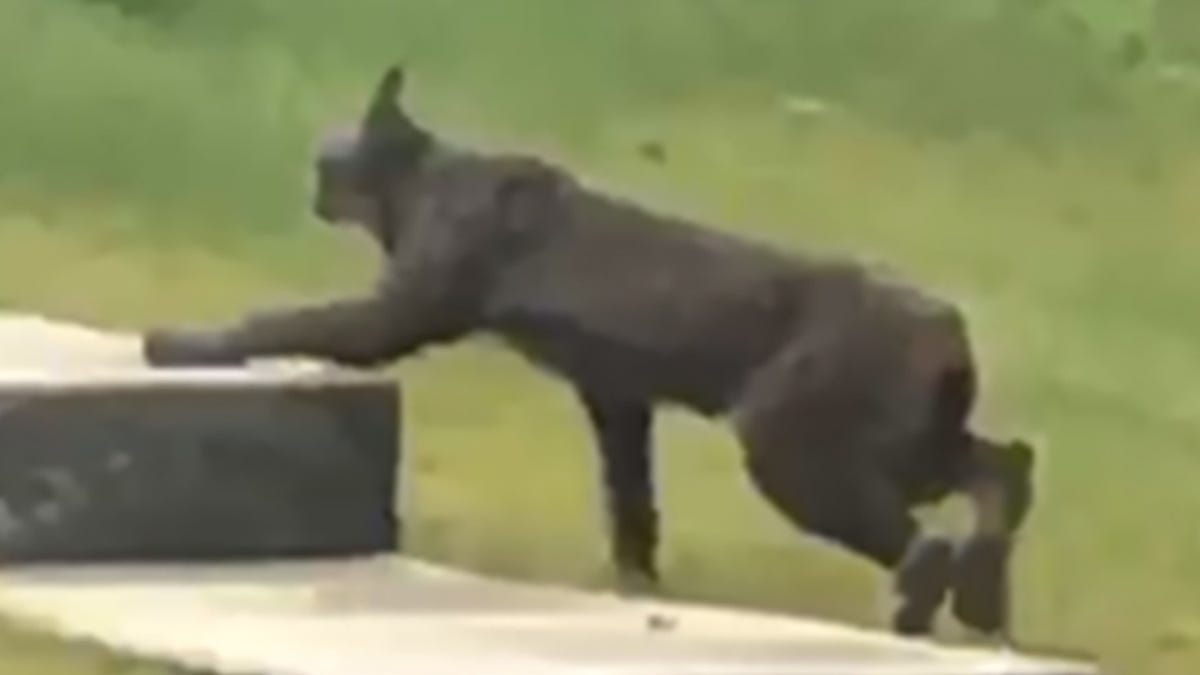See a Black Canada Lynx Caught on Video: Rare Big Cat Filmed for First Time
Most Canada lynxes are gray or brown depending on the season.

The phone video produced some low-resolution still images, including this view of the lynx walking.
The Canada lynx is a wild cat known for tufted ears, big feet and gray or brown fur. In August 2020, a lynx that was not like the others appeared in the Yukon territory. A short cell phone video provided proof, and the cat is now the subject of an article published in the journal Mammalia by University of Alberta researcher Thomas Jung.
In a statement on Tuesday, Mammalia publisher De Gruyter called the cat a "unique finding" and said this is the first time a black-coated Canada lynx has been photographed.
The black-coated lynx is melanistic, meaning it has more dark pigment in its hair, giving it its unusual color. In the video, an alert dog can be heard making a ruckus. The lynx, seen sitting in grass near some steps in a residential area, seems unconcerned and eventually walks away.
Canada lynx typically sport gray coats in the winter and brownish coats in the summer, and variations are rare. The video was taken from about 164 feet (50 meters) away, but Jung and experts who studied the footage were able to determine the cat sported some whitish gray hairs around the face.
One question scientists like to ask about extreme color variations in mammals is whether the trait is likely to help the animal (be adaptive) or hinder it (be maladaptive). In the case of the black-furred big cat, it could create challenges when the creature's trying to sneak up on dinner in a snowy landscape. "The adaptive significance of melanism in lynx is unknown, but the loss of camouflage when hunting during winter is likely maladaptive," the paper suggests.
Big cats tend to capture the human imagination. They may look like jumbo versions of our beloved house pets, but they're serious predators in the wild. The black-coated lynx shows how nature sometimes takes an unexpected path.

